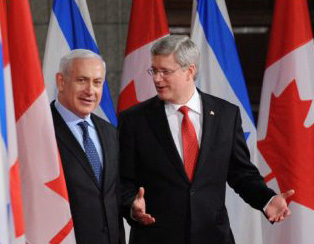A-mal-ga-mation, that is.
I have interspersed my observations (in red) between Eric’s paragraphs and appended a couple of graphics for the contemplation of interested readers:
Fragmentation is your choice of word. We don’t all worship at the same altar: we are a diverse community, and to think that the chamber of commerce, the arena couple and aquatic centre are the touchstones of the community is a shaky premise.
The need for this area to find a collective focus becomes increasingly urgent with each passing year. A stronger partnership amongst the City of Port Alberni and the outlying electoral areas of Sproat Lake, Beaver Creek, Cherry Creek and Beaufort is needed – a fact that makes the amalgamation of these areas into a district municipality a necessary topic among civic leaders in the future.
We can have collective focus without necessarily amalgamating all functions, and this needs to be a strong consideration in any discussion about consolidating governing structures.
For those who enjoy the benefits of the outlying areas’ rural lifestyle, “The District Municipality of Alberni” is a phrase that could make some squirm with discomfort. A major fear is that the city would just swallow up the smaller electoral areas like a marauding beast hungry for more tax dollars. But there are several reasons amalgamation would bring savings for the whole Valley, and push the area to be a more cooperative, streamlined community with a refined focus to find its potential in the 21st century.
Cost savings can be an entire red herring and, further, Port Alberni within its own bailiwick, is hardly the cooperative and streamlined community that you envision. The lack of focus reflects considerable divergence in a view of what the community ought to be: discussions on refined focus seem to constantly end up in the same place, a place where a significant portion of the population of the Valley chooses not to go.
Port Alberni is one of the few municipalities of its size to boast a fire department entirely composed of full-time professionals. The all-pro payroll isn’t cheap, but the costs of running the volunteer fire departments that serve Beaver Creek, Sproat Lake and Cherry Creek actually cost more per home due to the small population sizes of these outlying communities – in fact the Sproat Lake Volunteer Fire
Department took up most of the electoral area’s budgeted costs in 2015. Amalgamation could still use the valuable services of these volunteer firefighters, but with more professional support from the city’s force.
We need perhaps to consider that it is a specious argument to work at saving money on the backs of firefighters. They do a job, they should get paid. Current mutual aid operations work well enough, but having staffed fire halls around the Valley would likely improve both response time and outcomes. Paying firefighters is somewhat akin to paying insurance premiums on which your deepest hope is never to collect.
For a community, no natural resource is more important than water. The city currently taps into one of the best systems on Vancouver Island, as was proven during last summer’s drought when restrictions were imposed earlier and more severely in several other municipalities. The city has not issued a boil water advisory since December 2007, and now Beaver Creek residents can feel more at ease since joining Port Alberni’s supply two years ago. Plans are underway that could lead to Sproat Lake doing the same, creating a regional water supply that also includes Sproat Lake as a source. A more collective system that encompasses the whole Alberni Valley is inevitable as global warming continues.
A Valley-wide water system with multiple sources and sufficient redundancy built into the delivery mechanisms makes a lot of sense, but, again, does not require that all administrative functions be rolled into the compact dysfunction of a central municipal council. The funding for such a system ought properly to be shared among the local governments, the province and the federal government where we derive some benefit from the broader base of taxpayers as others have benefitted from the taxes we have paid over the years,
The meaninglessness of the municipal boundary between Port Alberni and its surrounding electoral areas is again shown with the location of the Valley’s signature tourist attraction, the McLean Mill National Historic Site. The city owns and subsidizes the mill and its steam train, but a ride on the No. 7 starts in Port Alberni’s Harbour Quay, and ends at the McLean Mill in Beaver Creek. This historic asset is about the logging history of the whole Valley.
The signature tourist attraction for the Valley might be more about fish than about the Mill, but the Mill is a good start at bringing a recreational focus to what we do in the Valley. The anomalies of ownership mean little in terms of coherence of recreational objectives and there is little to indicate that Mill governance or attractiveness would improve significantly under a district municipality.
Before some rural residents clutch their wallets for fear of tax hikes, the point cannot be lost that we’re all in this together when it comes to shouldering costs and attracting development to the Valley. Some powerful lobbying is needed in the near future to make those in Victoria and Ottawa listen to Alberni’s needs.
Again, we don’t need a major overhaul of administrative structures to speak with a unified voice. One might posit that we are unlikely to be heard in Victoria and Ottawa until we have the good sense to elect a member of the party forming government. Oh, wait, that describes the situation at the federal level for the decade preceding last October’s election, as well as the Trumper years in Victoria. It doesn’t take a lot of research or imagination to know that direct benefits to the Valley under both regimes have been negligible.
For years residents have been pushing for an alternative highway to provide a safer route than the winding mountain pass through Cathedral Grove. Yet with cost estimates starting somewhere around $50 million, a commitment from the province has yet to materialize. An initiative to expand the Alberni Valley Regional Airport suffered three grant rejections from the provincial government and the feds, placing the financing of the multi-million-dollar project on the backs of taxpayers. A large portion of Port Alberni’s watershed is owned by a logging company, and although a boil water advisory hasn’t been issued in years, provincial law does not obligate Island Timberlands to inform the city of what its doing with our water source.
See the above. Our current economic and legal system makes no provision for local government to alter the status of forest/watershed ownership. In fact, it was our current provincial government that allowed said logging company to remove our watershed from TFL without penalty for the benefits they enjoyed under the years under the TFL regime. As for the alternate route, it really looks as though the benefits of the route never rise to the point where they would justify the cost. This has been on the agenda since I arrived here forty years ago and has advanced only in the discourse of politicians attempting to curry favour and locals whose capacity for oneiric satisfaction displaces their connection to reality. Please see the attached bit about Dakota wisdom.
The list could go on for reasons a more collective government is needed in the Alberni Valley. According to B.C.’s Local Government Act, a vote involving affected residents with more than 50 per cent approval is required to make the district municipality happen. The issue needs to be considered by officials, then put to the electorate. Will our future be determined by fragmentation and fear, or the cooperative formulation of ideas that benefit the whole Alberni Valley?
By all means, let’s have the discussion, but bullying the outlying communities into a shotgun wedding with the city would be cause for considerable strife. There will have to be compelling evidence to convince those in outlying areas to join forces with the city, especially when cooperation on an issue-by-issue basis might produce equally good results.
An impediment to consolidation of local authority is the lack of trust engendered by a sense that the City is not well governed and I would like to offer the silly graphic below for contemplation in regard to the governance of any jurisdiction, Port Alberni being no exception (but how many cases of government do we know of that fall in that upper right quadrant?).



















